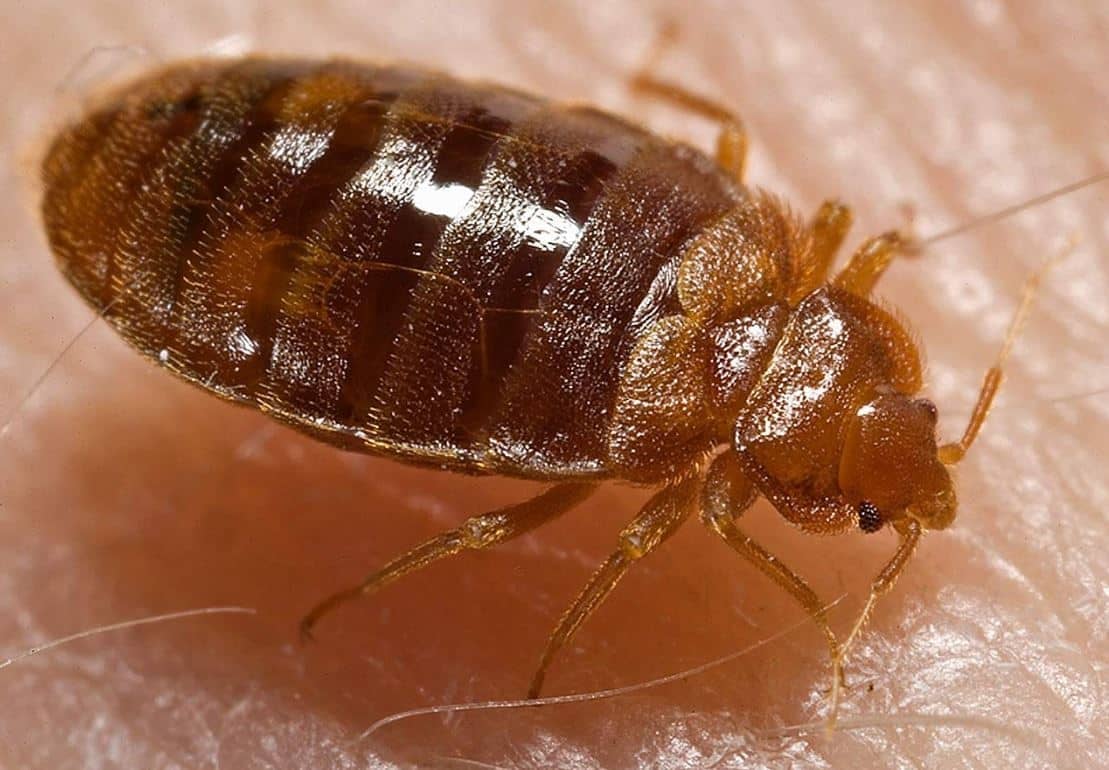DC Ranked No. 9 for Bed Bugs in New Orkin Survey

WASHINGTON — Like many things in Washington, it all depends on how you look at it.
When it comes to bed bugs, things have slightly improved in the District of Columbia since the height of the pandemic, when the pest control firm Orkin ranked it No. 7 out of 50 U.S. cities for its prevalence of the little predators.
Still, being No. 9 is nothing to brag about.
Of course, it could be worse. Chicago, Illinois, has topped Orkin’s Top 50 Bed Bug Cities List for three years running.
Coming in second and third: New York and Philadelphia, Pennsylvania.
Los Angeles, California, saw the largest jump this year, moving up seven spots into the Top Five, with Cleveland, Ohio (No. 4), and Raleigh, North Carolina (No. 20), each moving up the list by four spots.
Why oh why do we need to know all this?
To Orkin, it’s simple, “as Americans begin to book hotels for 2023 and beyond,” it says in the press release announcing its latest findings, “it is critical for travelers to know how to identify and thoroughly check for bed bugs within hotel rooms (and beyond) while taking care not to bring the pests into their own homes.”
Only two other local cities make this year’s list: Norfolk, Virginia, which clocks in at No. 23, and Richmond, Virginia, which is No. 26.
According to Orkin, bed bugs are typically about 3/16 of an inch long, red to dark brown in color and are mostly nocturnal insects that come out of hiding to take blood meals from sleeping humans.
They are hematophagous, which means blood is their only food source. They can travel from place to place with ease, clinging to items such as luggage, purses and other personal belongings.
“Bed bugs are extremely resilient, making them difficult to control. As people begin to ramp up their travel plans this year, it’s important they know how to protect themselves through pest identification and proper control,” said Ben Hottel, Orkin entomologist.
“Contrary to popular belief, bed bugs are visible to the naked eye, but are excellent at hiding. Involving a trained professional at the sight of a bed bug introduction is recommended,” he said.
Bed bugs are known for rapid population growth. Female bed bugs can deposit one to five eggs a day and may lay 200-500 eggs in their lifetime. They can survive for several months while waiting for their next blood meal, so they’re likely to emerge when a food source — for example, humans or animals — become available.
While it’s important to be aware of bed bug infestations within hotels, practicing precautions in other aspects of travel are also important.
Here are a few ways Orkin says you can protect yourself, your loved ones and pets:
At Home:
- Inspect your home for signs of bed bugs regularly. Check the places where bed bugs hide during the day, including mattress tags and seams, and behind baseboards, headboards, electrical outlets and picture frames. Inspect when you move in, after a trip, when a service worker visits or after guests stay overnight.
- Decrease clutter around your home to make it easier to spot bed bugs on your own or during professional inspections.
- Examine all secondhand furniture before bringing it inside your home.
While Traveling:
- Survey the hotel room for signs of an infestation. Be on the lookout for tiny, ink-colored stains on mattress seams, in soft furniture and behind headboards.
- Lift and look in bed bug hiding spots: the mattress, box spring and other furniture, as well as behind baseboards, pictures and even torn wallpaper.
- Elevate luggage away from the bed and wall. The safest places are in the bathroom or on counters.
- Examine your luggage carefully while repacking and once you return home from a trip. Always store luggage away from the bed.
- Place all dryer-safe clothing from your luggage in the dryer for at least 30-45 minutes at the highest setting after you return home.
“Taxis, buses and airplanes are also common bed bug hiding places, allowing these pests an opportunity to hitch a ride with unsuspecting travelers. Examining clothing and luggage regularly while traveling can help to catch a bed bug infestation in the early stages,” Hottel said.
Dan can be reached at [email protected] and @DanMcCue
























